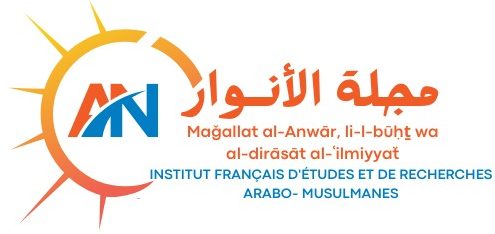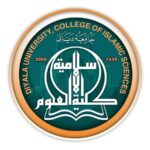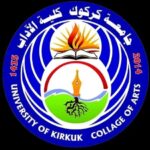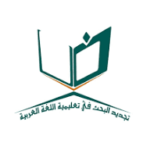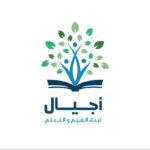في فضاء تتقاطع فيه التحديات السياسية بالتحولات الاجتماعية، وتحت وطأة أزمات متراكبة تتجاوز حدود الجغرافيا لتبلغ أعماق المعنى، تتبلور رؤية المعهد الفرنسي للدراسات والبحوث وشؤون الأوسط لشراكاته لا كتحالفات وظيفية، بل كخطاب فلسفي يمارس دوره في تفكيك العالم وإعادة بنائه بناء مفهوميا.
الشراكة هنا تُستعاد من سياقها المؤسساتي إلى أفقها الوجودي، حيث تصير التعبير الأعلى عن إدراك جماعي بأن المعرفة لا تُنتج في الفراغ، وأن أي مشروع علمي لا يحقق اكتماله إلا حين ينفتح على الآخر ــ لا بوصفه طرفًا مغايرًا، بل بوصفه ضرورة أنطولوجية تكمّل النقص، وتعيد توزيع الأدوار في مشهد الفكر.
ينظر المعهد إلى كل شريك ـ سواء كان جامعة، مركز بحث، منظمة مدنية أو جهة تدريبية ـ باعتباره حاملًا لتجربة رمزية تنتمي إلى نسيج أوسع من الذاكرة الإنسانية. فالشراكة، في هذا التصور، ليست تعاونًا عابرًا، بل تموضع داخل سردية معرفية تتوخى مساءلة الخطاب السائد، وإعادة هندسة أدوات الفهم.
من هذا المنظور، لا تُصاغ الشراكات إلا بوصفها حوارًا دائمًا بين الذات والآخر، بين المحلي والعالمي، بين الحاضر وتاريخ المعاناة، حيث يصبح إنتاج المعرفة نوعًا من “الدبلوماسية الهادئة”، التي لا تسعى لفرض أجوبة جاهزة، بل لصياغة أسئلة أكثر التباسًا، وأكثر قدرة على الكشف.
وفي عالم يفيض بالمعلومات ويفتقر إلى الحكمة، تشكّل هذه الشراكات إحدى ركائز مشروع المعهد في خلق “عقل بحثي”، قادر على الحفر في العمق، على استشراف السلام لا كحالة سكون، بل كدينامية عقلانية وتاريخية، وعلى رؤية الأزمات لا كعقبات، بل كبوابات نحو تجاوزات معرفية جديدة.
—
Dans un espace où les défis politiques se croisent avec les mutations sociales, sous le poids de crises multiples qui dépassent les frontières géographiques pour atteindre les profondeurs du sens, l’Institut Français d’Études et de Recherches sur le Moyen-Orient conçoit ses partenariats non pas comme de simples alliances fonctionnelles, mais comme un discours philosophique engagé dans la déconstruction du monde et sa reconstruction conceptuelle.
Le partenariat est ici réhabilité de son contexte institutionnel vers un horizon ontologique, devenant l’expression suprême d’une conscience collective selon laquelle la connaissance ne se produit jamais dans le vide, et qu’aucun projet scientifique ne peut se compléter sans ouverture à l’Autre — non comme entité étrangère, mais comme nécessité ontologique comblant l’incomplétude et redistribuant les rôles dans la scène intellectuelle.
L’Institut considère chaque partenaire — université, centre de recherche, organisation civile ou institution de formation — comme le porteur d’une expérience symbolique appartenant à un tissu plus vaste de la mémoire humaine. Le partenariat devient ainsi dialogue continu entre le soi et l’autre, entre le local et le global, entre le présent et l’histoire de la souffrance, où la production du savoir devient une forme de “diplomatie silencieuse” : non pas imposer des réponses, mais formuler des questions plus complexes et révélatrices.
Dans un monde saturé d’informations mais pauvre en sagesse, ces partenariats constituent l’un des piliers du projet de l’Institut : forger un “esprit de recherche” capable d’approfondir, d’envisager la paix non comme état de repos mais comme dynamique rationnelle et historique, et de percevoir les crises non comme des obstacles, mais comme des seuils vers de nouveaux dépassements de pensée.
—
In a space where political challenges intersect with social transformations, under the weight of layered crises that transcend geographical boundaries to reach the depths of meaning, the French Institute for Studies and Research on Middle Eastern Affairs envisions its partnerships not merely as functional alliances, but as a philosophical discourse actively engaged in deconstructing the world and reconstructing it conceptually.
Here, partnership is reimagined beyond its institutional frame into an ontological horizon, as the highest expression of a collective awareness that knowledge is never born in a vacuum, and that no scientific endeavor can reach completion without opening up to the Other—not as a foreign entity, but as an ontological necessity that fills the gaps and redistributes roles in the intellectual scene.
The Institute regards each partner—whether a university, research center, civil organization, or training institution—as a bearer of symbolic experience embedded in the broader fabric of human memory. Partnership thus becomes an ongoing dialogue between self and other, between the local and the global, between the present and the history of suffering, wherein the production of knowledge becomes a form of “quiet diplomacy”—not to impose ready-made answers, but to shape more complex and revealing questions.
In a world overflowing with information yet lacking wisdom, these partnerships stand as one of the pillars of the Institute’s mission: to cultivate a “researching mind” capable of depth, of envisioning peace not as stillness but as a rational and historical dynamism, and of seeing crises not as impediments, but as gateways to new epistemic transcendence.
